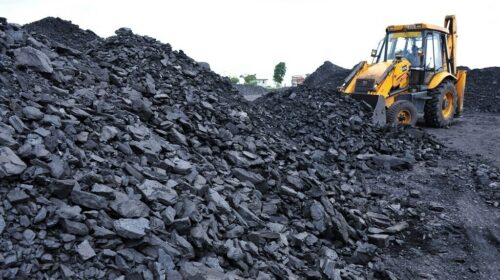Rising oil and gas prices in the international market as well as supply chain disruptions created by the ongoing Russia-Ukraine conflict have pushed Pakistan to look for alternatives as the country struggles to buy fuel on the spot market.
As per a report in Bloomberg, Pakistan is shifting towards Afghan coal to meet its energy needs, as state-owned Pakistan LNG Limited did not award a recent purchase tender seeking several shipments of liquefied natural gas through May due to high offer prices.
Meanwhile, the local cement industry is buying coal from Afghanistan at roughly half the price of shipments offered by its regular supplier in South Africa.
As per a report published by local brokerage house AKD Securities earlier this month, the cement industry has been moving towards Afghan coal post increase in prices.
“Current prices of coal have forced local players to move towards other sources where Afghan coal has taken a lead,” said AKD Securities in the report. “Some of the players in the northern region are utilising upto 70% of Afghan coal in their fuel mix.
“However, prices of Afghan coal are on an upward journey as well.”
Oil prices rise on tight supplies, stable demand
Pakistan remains heavily reliant on imported fuel to meet its growing needs and the rise in commodity prices has hit the country hard.
During February 2022, fuel cost for power generation increased by 89.6% YoY to an average of Rs8.94/KWh compared with average cost of Rs4.7/KWh during February 2021.
“On YoY basis, the rise in fuel cost is witnessed mainly due to rise in coal, furnace oil, RLNG, nuclear and gas-based cost of generation,” said Arif Habib Limited (AHL).
Furthermore, Bloomberg added that one of Pakistan’s long-term suppliers recently cancelled several LNG cargoes for delivery through July, and the country cannot afford to replace them with spot market purchases, according to traders, leading to power shortage risks.
Coal imports from Afghanistan have risen to around 500,000 tons a month from nil reported last year, according to Maple Leaf Cement Factory Ltd, added the report.
Rupee falls to yet another all-time low against US dollar
Maple Leaf Chief Financial Officer Mohsin Raza Naqvi said at a briefing this month that cement manufacturers pay for the coal in local rupees and then Afghans use the money to buy goods like wheat and meat from Pakistan.
“It’s sort of a barter that’s happening,” Naqvi was quoted as saying. “With these global prices, Afghanistan coal supply will keep continuing and growing.”







